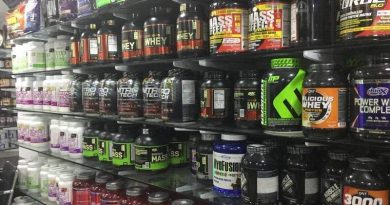Will DTC Brands Be the Supplement Industry Norm?
With (hopefully) COVID behind us, we have a lot to look back on from a business standpoint. We witnessed brands, both big and small, suffer during the pandemic, and many brands were exposed for sitting back and thinking they could just cruise right through and come out the other side of this unscathed. DTC brands (direct-to-consumer brands) seemed to have an easier time navigating through the mess we all witnessed, while those who flexed hard and said they’d make it work in retail paid the ultimate price.
Having said all that, will we now see a significant shift in the supplement industry where more and more DTC brands will emerge and stay in that one lane to grow their business?
Let’s discuss DTC brands and if we are witnessing a change in how the supplement industry will do business moving forward.
Table of contents

DTC Brands Are Thriving
Supplement brands that weren’t selling through their website before the pandemic were finding it hard to build sales when many retailers were closed. Some supplement brands even closed their doors due to being unable to make ends meet.
Related Article: Is Retail Dying at the Hands of E-Commerce Shopping?
Unfortunately, many brands are suffering and scrambling to build back sales after being unable to pivot during tough times and change their business model to become one of the DTC brands out there on the internet.
Those DTC brands who were hit like everyone else during the pandemic saw a slight dip in sales, but many found it to be extremely lucrative since many of their competitors are not DTC brands and weren’t set up to sell directly through their websites.
Giving Up Too Much Margin for Little Returns Through Distribution

Something of interest to note is that DTC brands have the ability to see incredible growth when compared to going the route of distribution. Sure, it’s nice to have someone out there selling your brand on your behalf, but that also comes with a hefty price.
Additionally, many brands think going through distribution is the way to go because they can then focus on other areas of the business while the distribution partner does all the selling. What these brands fail to understand is that thousands of brands are fighting for the distributor’s attention. What makes you certain they will have your brand top of mind when pitching a supplement store or retailer? You can’t bet on that happening. Sure, you could “spiff” the sales team, but then again, you’re losing margin going that route.
DTC brands have realized that it’s easier to do the selling themselves from their website, increase their margins instead of having to discount for distributors to take in their products, and the fact that they don’t need to compete on the shelves and pay for key shelf space at places like GNC, Vitamin Shoppe, and other large supplement retailers.
Retail Isn’t Dead, But Purchasing Behaviors Have Shifted to DTC Brands

Tying in with what was said above, after retailers were shut down or went out of business, many people sat at home and searched online for the items and products they needed. Who did they turn to for their supplement needs? DTC brands.
The consumer purchasing behaviors have definitely changed since the pandemic, and rather than people walking into retailers, they’re clicking buttons on their computers or smartphones to place orders.
Now, this isn’t to say that retail is dead. Many retailers have even started their own online sites where people can purchase directly from them. In addition, we are seeing more retailers allow people to purchase online, and then they do a store pick-up where they park their car, and a store associate will bring their order out to them, place it in the trunk, and away they go.
Is a Blended Model a Better Strategy?
Personally, I still find value in retail. Having a presence on shelf is still a viable way to grow a business. DTC brands may still want to think about key retailers they can partner with.

Would I go the route of a distribution deal? Absolutely not. Have your team identify key players in the retail space, work your deal with them, and ship them direct from your warehouse — no middleman needed. You get to have a relationship with the retailer, work together on promotions, and build the brand together so that everyone wins.
What would I do if I were just starting a brand? I’d 100% be one of the DTC brands out there, and that’s where I would start. Work with retailers, leverage social media, use your list and email blast promotions, sales, etc., and build traffic to your website. Have a blog that builds SEO, site authority, and value. From there, you’ll build trust, relationships, and sales.
Don’t overthink it but watch the trends, and everything points to DTC brands taking over the supplement industry.


*Disclosure: This article may contain affiliate links or ads, which means we earn a small commission at no extra cost to you if you make a purchase through these links. These commissions help support the operation and maintenance of our website, allowing us to continue producing free valuable content. Your support is genuinely appreciated, whether you choose to use our links or not. Thank you for being a part of our community and enjoying our content.
PLEASE CONSIDER SHARING THIS ON YOUR SOCIAL MEDIA TO HELP OTHERS LEARN MORE ABOUT THIS TOPIC.





